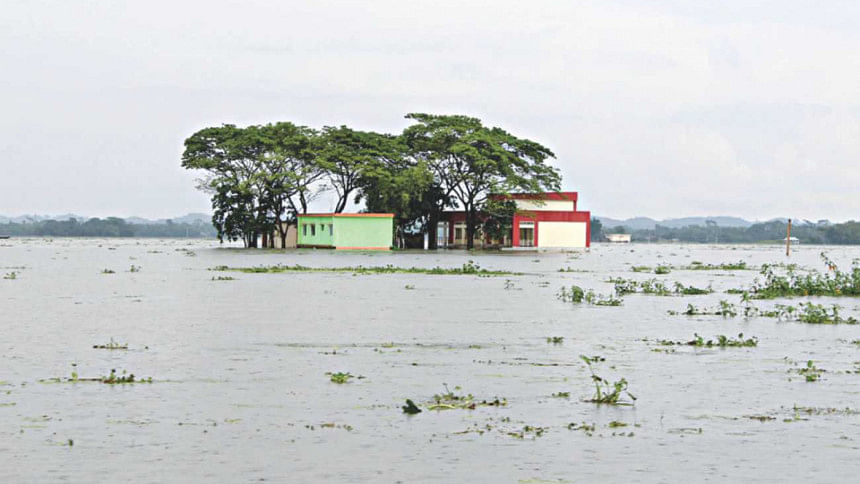Climate change: What Bangladesh can do

Growing up in the northeast region of the US, I can say that the average person's carbon footprint is one of highest in the world due to the privilege that comes with living there. From going on planes frequently to creating e-waste by disposing of old phones and TVs, the luxuries are endless. But across the country, in cities by the Pacific Ocean, people have different attitudes. There, you can't go to a grocery store having forgotten your reusable shopping bag without your fellow shoppers frantically trying to find you one. Where does this rare awareness and urgency come from?
Every day when these shoppers leave their homes, they're reminded of reality. Waste dots their ocean, bobbing in the waves. They see the effects of reckless actions firsthand and therefore have a greater drive to make a difference.
As a US-residing Bangladeshi, I expected the same aspect of human nature to stay true in Dhaka. When I arrived a few weeks ago, I was surprised that I wasn't immediately overwhelmed by a craze over global warming. According to the Scientific American, melting snow in the Himalayas is causing frequent flooding. Water edges further and further into our land everyday on coastal areas, wiping away farms, houses, etc. The World Health Organization claims that all the water is causing water-borne diseases like cholera to be even more common, and in a country that is burdened by overpopulation, this is even more dangerous. The Daily Star reported that The Intergovernmental Panel on Climate Change deemed “that groundwater, crop soils and many rivers are likely to become increasingly saline as a result of climate change effects.”
However, Bangladeshis have adapted, as usual. This country has repeatedly stunned the rest of the world by improving despite incessant obstacles. The way people have dealt with climate change is no different. According to The World Bank, farmers have thought of ways to make their ground fertile again after saline contamination. Flood shelters that accommodate cattle have been built to incentifise locals to utilise them in Cox's Bazar.
But when I asked my great-grandmother's cook Asiya if she knew anything about what was causing the need to adapt, she met me with a blank stare. Following a study done by The Guardian, neither Asiya nor the farmers brainstorming constructive ways to fend off the effects of climate change emit even one-seventieth of the carbon the average American emits. The injustice is in the fact that they didn't cause the problem, yet they're having to deal with it and they haven't even been made aware of why problems are arising.
National Geographic projects that by 2050, Bangladesh will be partially underwater. So how can we create a people who are taught the reason behind the flooding? A people that will propel a California-effect by showing the perpetrators of climate change the humanity in those who are suffering from it? We can read, write, speak and protest. We can join forces with those around us and push for education, push for the agenda, because we live in a country that will always strive to do more than save itself.

 For all latest news, follow The Daily Star's Google News channel.
For all latest news, follow The Daily Star's Google News channel. 



Comments